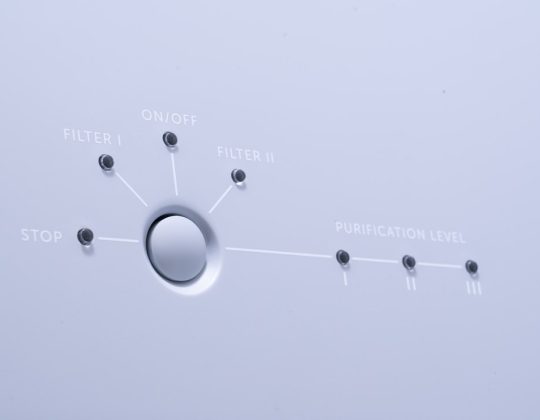Hiring a WordPress plugin developer can feel like hiring an actual wizard. You want amazing results, but you’re worried they might cast a spell and disappear halfway through the project—or worse, create a disaster spell that breaks your entire site.
TL;DR: Make sure your WordPress plugin developer knows what they’re doing, communicates clearly, and delivers on time. Avoid hiring people who seem mysterious or overpromise. Ask for code samples and test small parts first. Trust your instincts, but also verify experience and process before handing over your WordPress keys.
Why It Matters: Plugins are Power
Your WordPress plugin is more than just a block of code. It can transform how your site works. A good plugin makes life easier for everyone—your team and your visitors. A bad one can crash your site, confuse your users, and make developers everywhere cry.
So how do you hire someone smart enough to write great code, but grounded enough not to disappear into a mountain cave with your deposit?
Don’t Hire a Wizard. Or a Disaster.
There are two types you want to avoid:
- The Wizard: Talks fancy, uses big tech words, disappears when something goes wrong. You never know what they’re doing until your site breaks or turns into a swan.
- The Disaster: Overpromises, underdelivers, and creates plugins that are harder to clean up than glitter at a kid’s birthday party.
Let’s walk through how to find the third kind—a solid, trustworthy developer who makes your plugin dreams come true (without any arcane spells).
Step 1: Know What You Want… Sort Of
You don’t need to know how to code. But you should be clear on what the plugin should do.
Write a simple checklist:
- What does the plugin do?
- Who uses it? (Admins? Visitors?)
- Does it need to connect to another service?
- Should it work with any specific themes or plugins?
This gives the developer clear goals. If you can sketch the screens or draw a quick flowchart, even better.
Step 2: Location, Budget, Expectations
You can hire developers from anywhere in the world. But you need to match your expectations. Want someone available during your work hours? Then time zones matter.
Set your budget and timeline upfront:
- If it’s a quick job, describe that.
- If it’s part of a long-term project, mention future phases.
Not everyone charges the same. Remember: cheap work often gets expensive later when you need to fix it.
Step 3: Where to Find a Developer
Now the treasure hunt begins. Here are a few trusted places:
- Upwork – Has reviews and work history, but quality can vary
- Codeable – Focused on WordPress, high standards
- Twitter/X, Reddit, Discord groups – Great for reaching freelancers directly or asking for referrals
- GitHub – Search for developers building similar projects
Never hire from a “too good to be true” deal on some random site. If they vanish, your money and your code vanish with them.
Step 4: Vet Before You Regret
Here’s how to avoid hiring someone who says they’re Gandalf, but turns out to be Gollum.
Always ask for:
- Portfolio: Live plugins, GitHub repos, links to projects
- References or reviews: From past clients or platforms
- Sample code: Something they’ve personally written
You don’t need to understand every line of code, but if it looks like alphabet soup, or lacks structure, that’s a red flag.
Ask them to explain what the code does. If they get mad or defensive, run.

Step 5: Start Small
Don’t hire someone for a huge plugin job first thing. Start with a small piece—maybe one feature or function.
See how they:
- Communicate during the process
- Deliver on time
- Explain and document the code
- Follow WordPress best practices
If things go well, expand the work gradually. If they vanish or deliver a hot mess, you’ve only lost a small piece of the map—not your entire treasure chest.
Red Flags = Future Pain
If you spot any of these warning signs, pause and think twice:
- They refuse contracts or clear deadlines
- They won’t show you past work
- They want full payment before delivery
- Their communication is confusing—or non-existent
- They use way too much jargon and don’t answer questions clearly
You’re hiring someone to help, not to start a digital puzzle that only they can solve.
Good Signs = Green Lights
Now, here’s what a good developer looks like:
- They ask thoughtful questions
- They’re transparent about their process
- They include documentation and instructions
- They seem interested in making things easier for users—not harder
It’s less about flashy technical skills and more about attitude, reliability, and results.
What About Contracts?
Yes, you want one. Always use a basic contract—even a one-pager. It should include:
- Scope of work
- Delivery dates
- Payment terms
- Ownership of code
If either of you breaks the agreement, you’ll be glad it’s in writing.

Maintain the Relationship
Found someone awesome? Don’t lose them.
Send regular feedback. Pay them on time. Tell them when you’re planning new features. Maybe even send snacks (okay, or good reviews).
Good developers are like good dentists: when you find one you trust, treat them like gold.
Pro Tips & Bonus Ideas
- Use version control like GitHub or Bitbucket even on small projects
- Request unit tests if the plugin has business logic
- Ask them to follow WordPress development standards
- Make sure the plugin won’t break when WordPress updates (this happens… a lot)
- If they say “I don’t test on live sites,” you’re talking to a pro
Conclusion: Choose Your Plugin Partner Wisely
Hiring a WordPress plugin developer isn’t about finding the most brilliant coder. It’s about finding someone smart, reliable, and collaborative.
If you skip the vetting, trust blindly, and throw money at the first name in your inbox, you might end up with a beautiful disaster. Or a ghost coder who promised magic but left you a broken wand.
Take your time. Do your homework. Test the waters. And build something great together—without spells or surprises.








